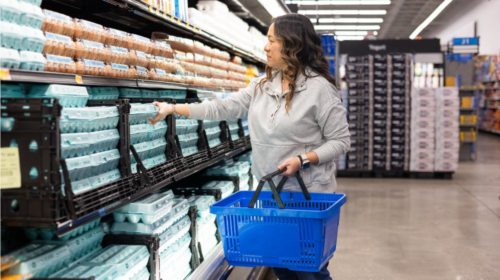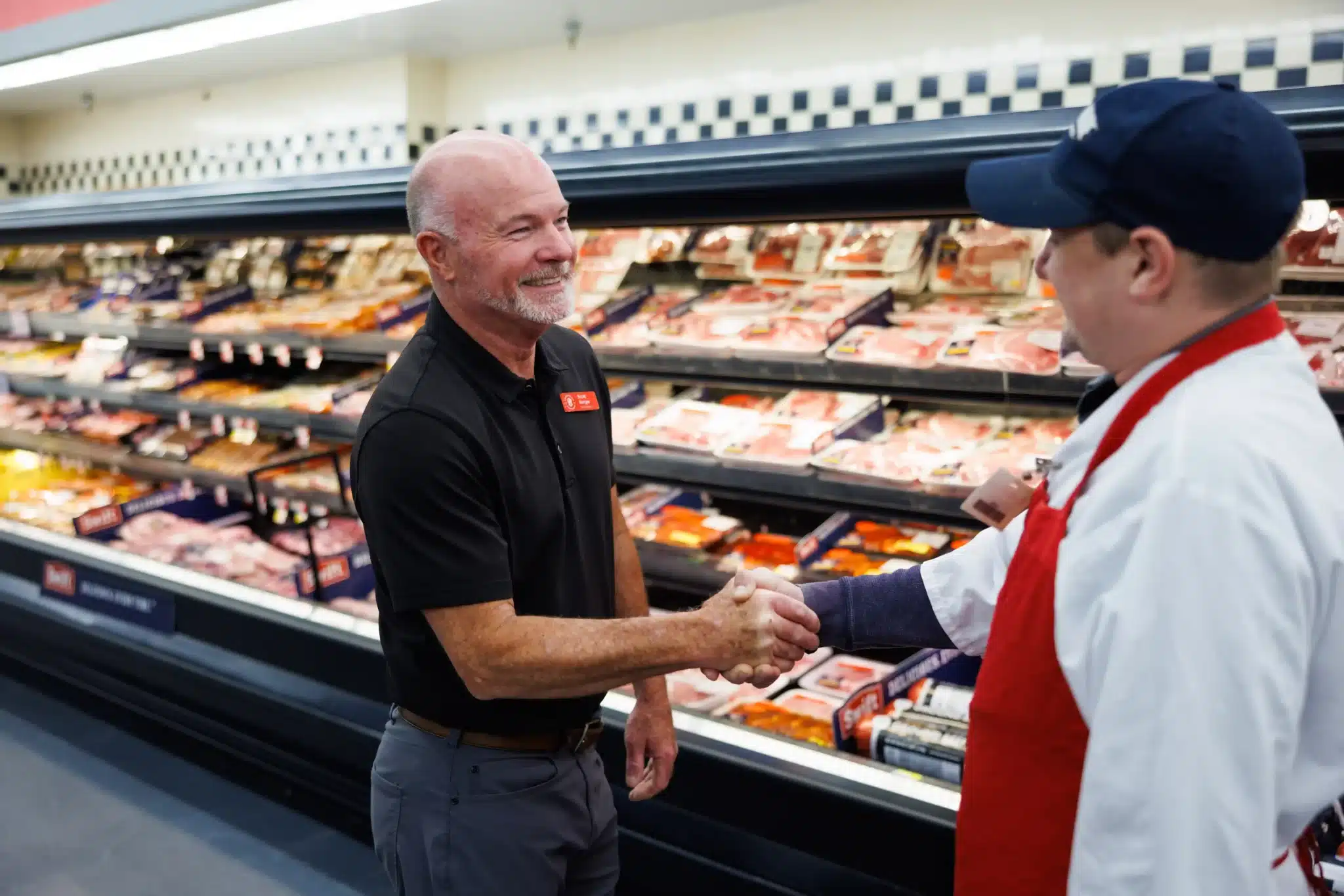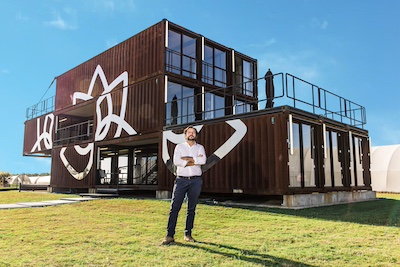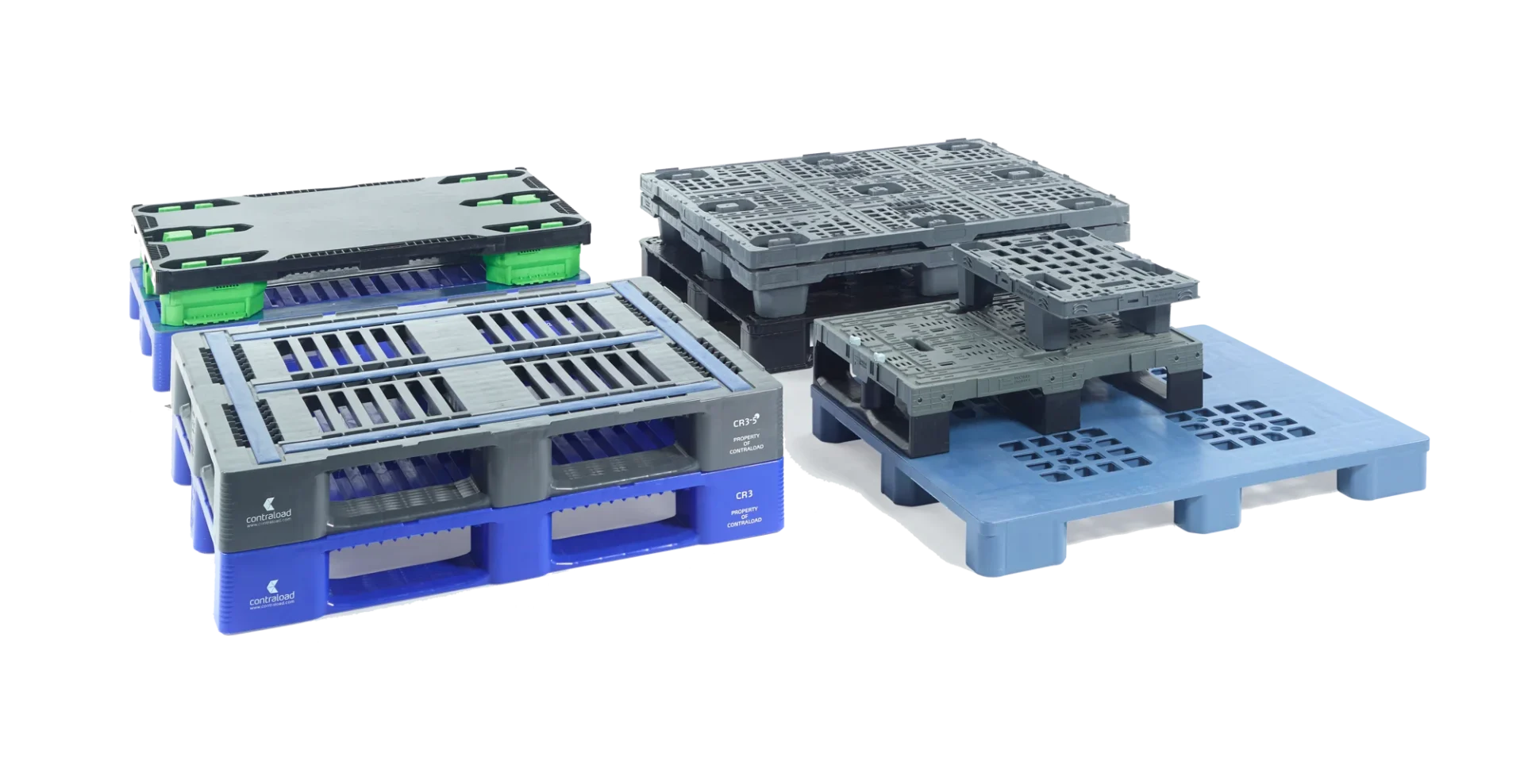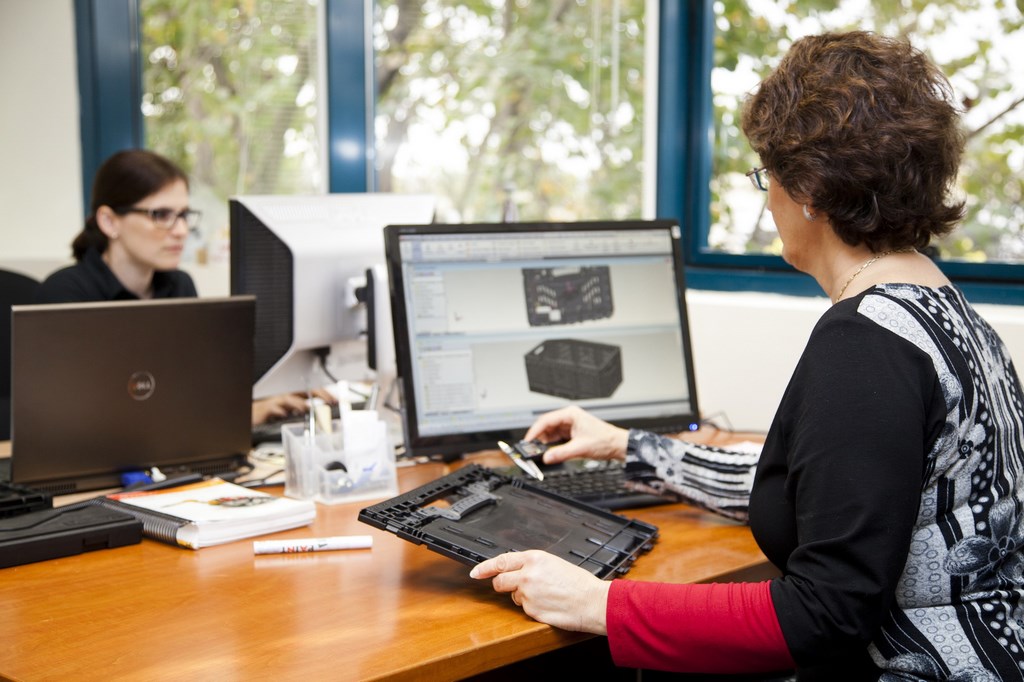In this article
Essen/Mülheim a.d.R. ALDI Nord and ALDI SÜD introduce the Düsseldorf plastic pallet throughout the company. From autumn 2020, both discounters will gradually replace the classic wooden pallet measuring 80 by 60 centimetres with a durable and at the same time more economical plastic version. The so-called “Kunststoff Düsseldorfer Palette” (KDP) is completely recyclable and already consists of around one third recycled material, i.e. reused plastic, including the yellow bin. The KDP is produced by Walther Faltsysteme.
Flexible all-rounder in the daily logistics routine of the food retail trade
“The plastic pallets are state-of-the-art technology. A real innovation for the optimisation of supply chains in food retailing,” says Stefan Ruhland, Director Logistics Management at ALDI SÜD. The pallet offers a static load capacity of up to 1,000 kilos and a dynamic load capacity of 500 kilos and is suitable for all common conveyor systems. A special contour is embedded in the pallet deck, making the KDP particularly compatible with the well-known returnable crates used in the fruit and vegetable sector, where it offers particularly high slip resistance and stability. Carrying handles and anti-slip plugs ensure a higher level of working and transport safety.
Pooling system replaces exchange principle
Different from the wooden pallets, there is no exchange principle with the KDP. Instead, KDP is made available to suppliers through a pooling system operated by Polymer Logistics. After each circulation, empty pallets are checked for damage and cleaned by the service provider. As a result, the pallets also meet higher hygiene standards. A further advantage: integrated RFID chips and barcode labels enable each pallet to be registered at the exact location. “The pooling service provider can track at any time how many pallets are in the depots, at the supplier and at the retailer. This also reduces pallet shrinkage,” explains Arne Ringkowski, Teamlead Return Logistics at ALDI Nord.
Simple repair and recycling ability
Düsseldorfer pallets made of wood are usually no longer usable after a few rounds and a repair is usually uneconomical. “Due to its modular design, the KDP can be repaired without much effort. Defective runners are simply replaced. Sorted out elements are recyclable and are fed into a recycling process,” says Arne Ringkowski. “We are convinced that our suppliers will also appreciate the advantages of the KDP. Visually, the new pallets are also a benefit and ensure an attractive presentation of goods in the stores”, adds Stefan Ruhland.
KDP has already been in use at HOFER since 2016 and has been continuously optimised since then. Due to its good practical suitability and the consistently positive feedback throughout the supply chain, ALDI Nord and ALDI SÜD have decided to introduce KDP throughout the entire country.
____
This press release was original published by Aldi in German and can be read here.

